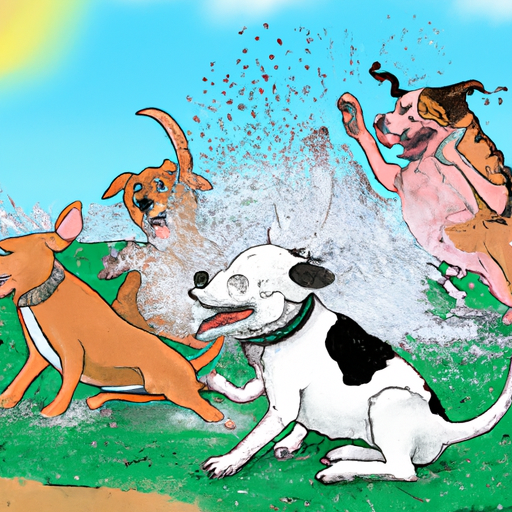As a caregiver to a furry friend, you might be wondering why dogs shake. Understanding the reasons behind this behavior can help you better care for your pet. Let’s delve deeper into this topic and unravel the mystery behind it.
Understanding Your Dog’s Body Language
Just like humans, dogs use body language to communicate, and shaking is one of the ways they express themselves. But what exactly are they trying to tell you?
- Excitement or Playfulness: Dogs often shake or shiver when they are excited or playful. This is common when they anticipate a fun activity, such as a walk or playtime.
- Physical Discomfort: If your dog is shaking and also shows signs of physical discomfort, it could be a sign of pain or illness. Make sure to consult with a vet immediately.
- Cold: Dogs can shake when they are cold, just like humans. If your dog has been outside in cold weather or has gotten wet, shaking may be a way to warm up.
While these are common reasons, it’s important to remember that every dog is unique. Always observe your dog’s behavior in the context of their environment and overall health.
The Science Behind the Shake
Dogs shake for a variety of reasons, and science can help us understand why. Here’s a simple table summarizing some common causes and the science behind them:
| Cause | Scientific Explanation |
|---|---|
| Excitement | The body releases adrenaline, causing muscles to contract and relax rapidly. |
| Physical discomfort | Pain can trigger the nervous system, leading to muscle tremors. |
| Cold | Shivering increases the metabolic rate and generates heat to warm up the body. |
The Art of Decoding the Shake
Now that you understand why dogs shake, you’re probably wondering how you can tell what your dog’s shake means. Here are a few tips:
- Observe the Context: Pay attention to what’s happening around your dog when they start shaking. Are they anticipating a walk? Have they just come in from the cold?
- Monitor Their Behavior: Is your dog behaving normally otherwise? If they’re eating and playing as usual, it’s likely the shake is due to excitement or cold.
- Look for Other Signs: If your dog is shaking and also seems distressed, lethargic, or unwell, it’s time to call the vet.
When to Seek Veterinary Help
While shaking is often harmless, it can sometimes be a sign of a serious health issue. You should seek veterinary help if:
- Your dog is shaking and also seems distressed or unwell.
- The shaking is persistent and doesn’t stop after a few minutes.
- Your dog is shaking and also has other worrying symptoms, such as loss of appetite, lethargy, or changes in behavior.
FAQ
1. Why does my dog shake after getting wet?
Dogs shake off water to dry themselves. The rapid shaking movement helps to remove water from their fur.
2. Why does my dog shake when he sleeps?
It’s normal for dogs to twitch or shake in their sleep. They may be dreaming or going through different sleep stages. However, if the shaking is severe or accompanied by other worrying symptoms, consult a vet.
3. Can shaking be a sign of anxiety in dogs?
Yes, dogs can shake when they’re anxious or stressed. If you notice your dog shaking during stressful situations, try to comfort them and consider consulting with a professional for advice on managing their anxiety.
4. My dog is shaking but seems otherwise fine. Should I be worried?
If your dog is shaking but otherwise seems fine, it’s likely nothing to worry about. However, if the shaking is persistent or if you’re unsure, it’s always a good idea to consult with a vet.
Remember, as a caregiver, you know your dog best. Trust your instincts and don’t hesitate to seek help if you’re worried. Your dog’s health and happiness depend on it.



